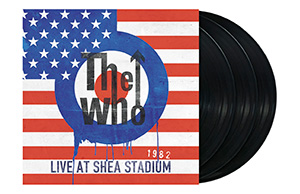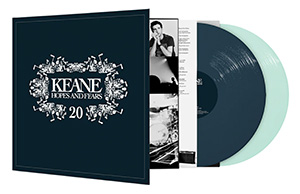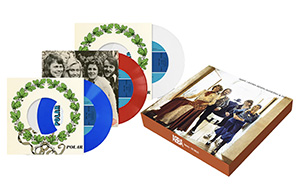‘Fidelio’: Beethoven’s Masterpiece Opera That Celebrates Love And Freedom
Explore Beethoven’s only opera ‘Fidelio’, a masterpiece celebrating love and freedom, featuring our recommended recording starring Jonas Kaufmann.

There are certain operatic scenes that never fail to tingle the scalp. Tosca stabbing her lecherous blackmailer to death, or Carmen fending off her murderous ex, for example. But the moment when Fidelio reveals himself to be a woman, heroically saves her husband, and then pulls a pistol on her evil nemesis, is a firecracker to beat them all. Fidelio was first premiered on November 20, 1805. To mark its anniversary, let’s take a look at what makes Beethoven’s only opera such a hot property.
A heroic woman-man? In the early nineteenth century? Seems quite trans-radical. What’s the plot?
Leonore, disguised as a young man called Fidelio, is working in a Spanish prison where she suspects that her husband Florestan is being held as a political prisoner. Eventually, she discovers him in a dungeon. When the evil governor Don Pizarro orders him to be murdered, she reveals herself as Florestan’s wife, flings herself in front of him as a human shield, and pulls out a gun. A minister of the king arrives in the nick of time to denounce Pizarro and restore justice. The climactic pistol/revelation scene is a real wowser.
It’s got sublime music. It’s about liberty, justice, and freedom. It’s got a villain, it’s got heroism, it’s got a dungeon… what’s not to like?
Hold on. Earlier on you said ‘first premiered’. Isn’t that a tautology?
Mwaaahaha! You fell into my trap. There are three versions of Beethoven’s opera Fidelio. The first, in 1805, was considered a bit too long and dramatically wobbly. The second was a hasty scissor-job staged a few months later in 1806. The third, from 1814, presents a complete overhaul of the work, and this is the powerful version usually performed today.
To avoid confusion – well, some of it anyway – the first two versions usually now go by the title Leonore.
Who wrote the libretto?
A whole clutch of people, none of whom are very well known. It was based on a French work by Jean-Nicolas Bouilly, Léonore, ou L’amour conjugal (Léonore, or Conjugal Love), which was one of a heap of ‘rescue operas’ which became popular in the aftermath of the French revolution. At least three other composers set the work (both in French and Italian) before Beethoven, but his is the only one still in the repertoire.
Revolution, tyranny, political prisoners… Sounds a bit heavy for me.
There is also a rom-com type subplot, but it’s not quite on the same level as the rest of the work, so I was rather hoping you wouldn’t make me bring it up. A young woman called Marzelline falls in love with Fidelio, making the lovelorn prison-warder Jacquino jealous. They squabble and kvetch quite a lot at the beginning of the opera. But Beethoven seems to forget about poor Marzelline in Act 2. She learns that Fidelio is a woman only at the very end, and her plotline is wrapped up before you can blink. She’s what you might call a disposable character.
You could say that having any form of knockabout comedy in a work about transcendental ideals of liberty is a mistake. But oddly, the one actually heightens the other.
Any other problems?
Well, now you come to mention it, there are a couple of things. It’s hard to believe that Florestan doesn’t recognize his wife until the ‘big reveal’, even if she is dressed as a boy. And the opera is actually a type of Singspiel, which means that there’s spoken dialogue between the numbers. On the whole, opera singers hate switching back and forth between speech and song, and it can feel a bit hard for non-German audiences to adapt to. But if you can get over that, the delights more than make up for it.
Such as?
The ‘Prisoners’ Chorus’ from Act 1 is an unforgettable highlight. Fidelio/Leonore persuades the chief jailer Rocco to let the prisoners out to feel fresh air and sunlight, so that she can search for her husband. Their chorus ‘O Welche Lust’ (‘O, What Joy’) is an expression of musical ecstasy, all the more potent for the atmosphere of constraint.
When Leonore overhears Don Pizarro’s plot to murder her husband, she sings one of the greatest soprano arias of terror and hope in the repertoire. It begins with declamation ‘Abscheulicher!’ (Monster!), and moves into a melody full of longing, to the words ‘Komm, Hoffnung’ (‘Come, Hope’).
Another great emotional outpouring comes at the beginning of Act 2, when the action moves from the prison courtyard to the dungeon. After a brooding introduction, we finally meet Florestan in his chains: he sings ‘Gott! Welch Dunkel hier!’ (‘God! How dark it is here!’). He dreams of his wife coming to save him.
Here’s Jonas Kaufmann, our current greatest Florestan, singing this almost impossibly difficult aria.
And finally, when Leonore frees her husband, and the chorus then joins in the festivities to close the work, the opera turns into a celebration of love and liberty.
Recommended Recording
“An exceptional Florestan – arguably the finest since Jon Vickers’s – from Jonas Kaufmann wonderfully conveys his moral greatness as well as the extremity of his suffering.” – Tim Ashley, The Guardian










